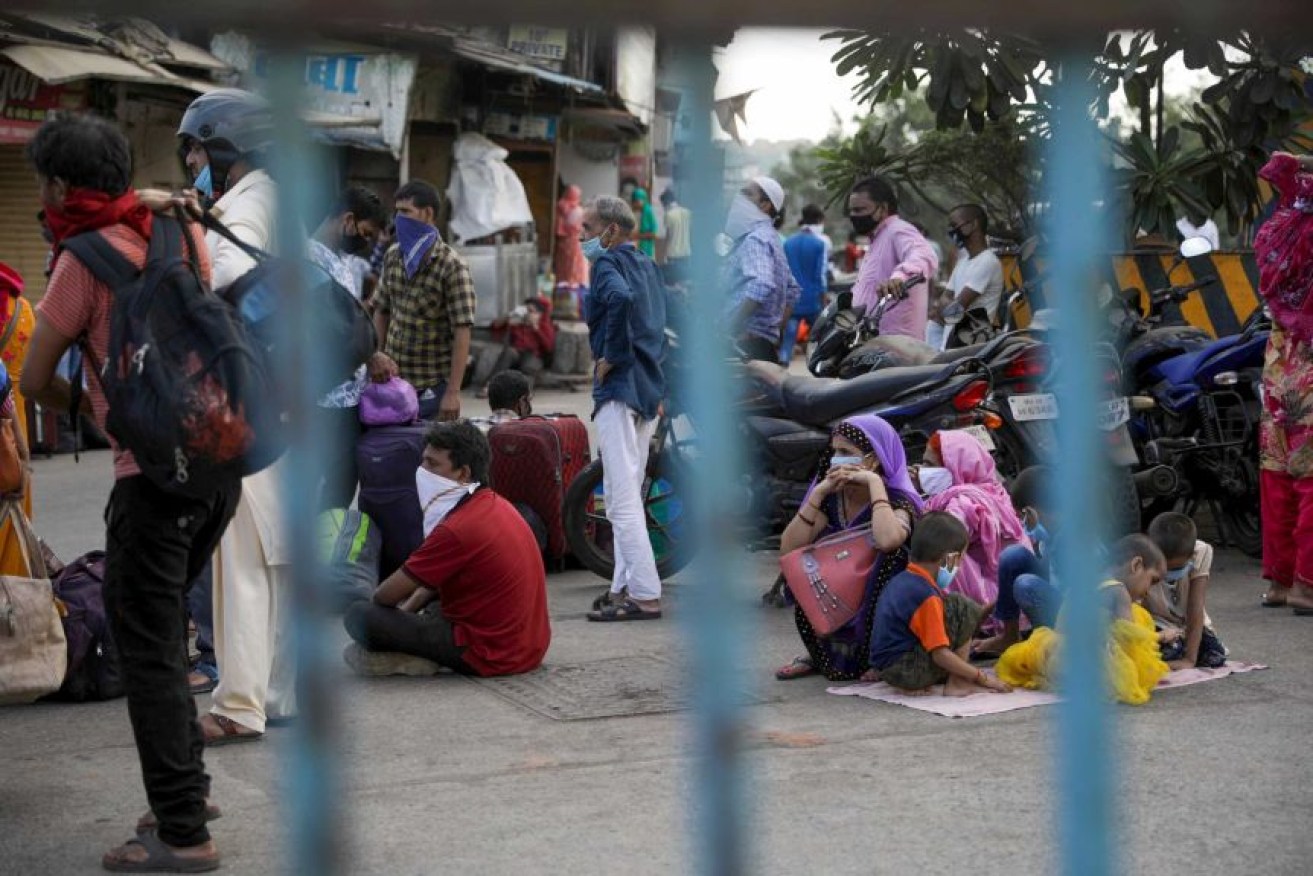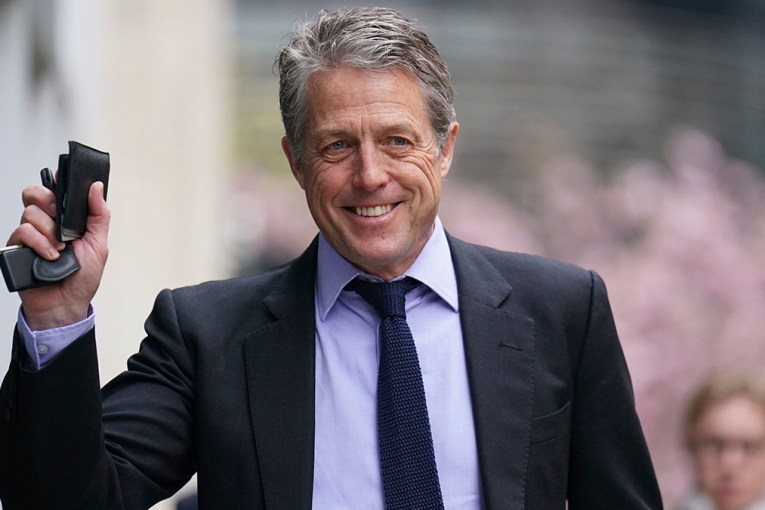Mumbai is rapidly turning into the world’s next coronavirus catastrophe

There are fears for people in Mumbai's slums, where overcrowding makes social distancing near impossible. Photo: ABC News/Nagesh Ohal
Indian businessman Manit Parikh had thought about the coronavirus pandemic that had swept his home city of Mumbai, but he never anticipated the crisis would engulf his family in just a few days.
His mother, after suffering a high fever, tested positive for COVID-19.
But the hospital she was in could not accommodate her because its coronavirus intensive-care unit was full.
He spent hours on the phone trying to get her transferred to another hospital, but each facility was in the same dire situation. They had no spare beds.
“We were scared,” Mr Parikh said.
“We did not know what to do. We did not know what would happen to her. The virus was attacking her lungs.”
His mother finally got transferred to another hospital by that evening.

The King Edward Memorial hospital in Mumbai has been inundated by COVID-19 patients since the pandemic began. Photo: ABC News/Nagesh Ohal
But the very next morning, Mr Parikh’s 92-year-old diabetic grandfather noticed his oxygen levels were dropping, during a routine health check at home.
Fearing a repeat of his mother’s experience, Mr Parikh tried to find an ambulance to administer life-saving oxygen while he spent hours searching for available hospitals.
That evening, his grandfather died in hospital. He also tested positive for COVID-19.
“[I feel] a lot of anger … basic medical treatment [was] not being given to him because of the lack of hospital beds,” he said.
“The few hours that went by depleted his oxygen count further, resulting in his health deteriorating even more. By the time he got into hospital … we lost him.”
Both Mr Parikh’s father and grandmother are now also in hospital after testing positive for COVID-19.
“I thought my entire family would be wiped off,” he said.
“All four of them [tested positive] over a span of three or four days.”
Is Mumbai the world’s next coronavirus catastrophe?
There are hundreds of tragedies like the Parikh family’s in Mumbai, a city that has borne the brunt of India’s coronavirus crisis.

A distraught woman is spotted outside the King Edward Memorial Hospital in Mumbai. Photo: ABC News/Nagesh Ohal
With more than 37,000 infections and 1200 deaths, Mumbai accounts for more than a fifth of India’s total coronavirus tally and almost a quarter of all deaths.
There are no clear signs the situation is improving, with hundreds – if not thousands – testing positive each day.
Last week videos were uploaded to social media showing bodies lying on hospital beds next to living COVID-19 patients.
This is from Rajawadi hospital !
What has really changed or we should just lose hope completely!! pic.twitter.com/Hun3AEWpvZ— nitesh rane ( Modi ka Parivar ) (@NiteshNRane) May 24, 2020
Not only were the hospitals struggling to keep up, but so too were the crematoriums and morgues.
For doctors and nurses grappling with the outbreak, it is just another sign of how the healthcare system has become overwhelmed.
“One of the hospitals that I practise in doesn’t have a mortuary,” said Shruti Tandan, who heads up an intensive-care unit in a Mumbai hospital.

The hospital morgue is unable to properly store the bodies of Mumbai’s COVID-19 victims and so they’re lined up in corridors. Photo: ABC
“There were two deaths [in the ICU] and we couldn’t get the bodies taken away until the next morning because there was a wait list at the crematorium.
“We are overwhelmed on all fronts. It is a pretty grim situation.”
Doctors forced to turn away patients from ICU

A man is helped onto a stretcher at the entrance to Mumbai’s King Edward Hospital. Photo: ABC News/Nagesh Ohal
India’s rate of infection has shown no strong signs of flattening, despite the country imposing the world’s largest lockdown in late March.
There are more than 182,000 confirmed cases. On Sunday, the country recorded its highest ever daily increase, with 8380 confirmed infections.
Mumbai has long been the worst-affected city, with its high rate of infection and buckling health system leading to many seeing it as India’s New York.
Queues of sick people form outside public hospitals, waiting hours in the humid heat for a chance of admission.
One man, Ghanshyam Yadav, told the ABC he could not get admitted despite having papers showing he was COVID-19 positive.
“The nurses keep on saying ‘come back after an hour’, then two hours, then four hours,” he said.
“I have been sleeping on street for the last three days. I am surviving on food and water provided by good people.”

Bhendi Bazaar is one of the busiest and most crowded areas of Mumbai, and is now a blazing COVID-19 hotspot. Photo: ABC News/Nagesh Ohal
The virus has also broken out in the city’s notoriously large and crammed slums, where communal showers and toilets make social distancing impossible.
For Dr Tandan, the crisis hit hard four weeks ago, when the case load became so immense that he had to start refusing patients into her ICU.
“The whole week I’m on call I didn’t sleep because I was managing beds and saying no,” she said.
Even during her days off work, Dr Tandan is haunted by the things she has seen.
“It just dwells on you. It kills you from the inside – to know that when you are refusing a patient you are indirectly signing a death warrant,” she said.
The situation has been unrelenting since.
Every shift she juggles patients from oxygen tanks to ventilators.
She even once tried to figure out whether she could connect multiple patients to one ventilator, before accepting it was not a feasible option.
It is not just those directly on the front line feeling the brunt.
“Mumbai is full of hospitals, but many of them were caught quite unprepared,” surgeon Sanjay Nagral said.
The overstretched medical system is leading to deaths that are not even attributed to the virus, doctors have said.
“The first few weeks [of the outbreak] were quite disastrous, because many people could not get dialysis and people actually died because of lack of access to dialysis,” Dr Nagral said.
Not even doctors are safe from the virus
Doctors have told the ABC that Mumbai’s hospitals were running at capacity before the spread of coronavirus, meaning it did not take much for the system to break.
In Mumbai, at least four hospitals have been placed into quarantine after outbreaks emerged among nurses and staff.
At least 215 doctors and 310 nurses have tested positive for COVID-19 in the state of Maharashtra.

Malvika Neeraj wore personal protective gear and took all precautions while treating COVID-19 patients, but still managed to contract the virus. Photo: ABC/Malvika Neeraj
One of them is Malvika Neeraj, who screens and tests incoming suspected cases at St George’s hospital.
“You go numb,” she said.
“My first thought is, ‘I must have infected the nursing staff or interns’. God knows if I have infected some of my patients.”
She has since recovered but remains quarantined at the hospital’s living quarters as neighbours in her housing complex have made it clear they do not want her coming and going from the hospital.
“It humbles every doctor because you realise no one is safe from the disease,” she said.
The state of Maharashtra has started utilising private hospitals to ease the case load, but for doctors on the front line, these steps are too little, too late.
“It’s a global epidemic,” Dr Tandan said.
“It’s not a matter of who will make or lose money, but who will live or die.”








